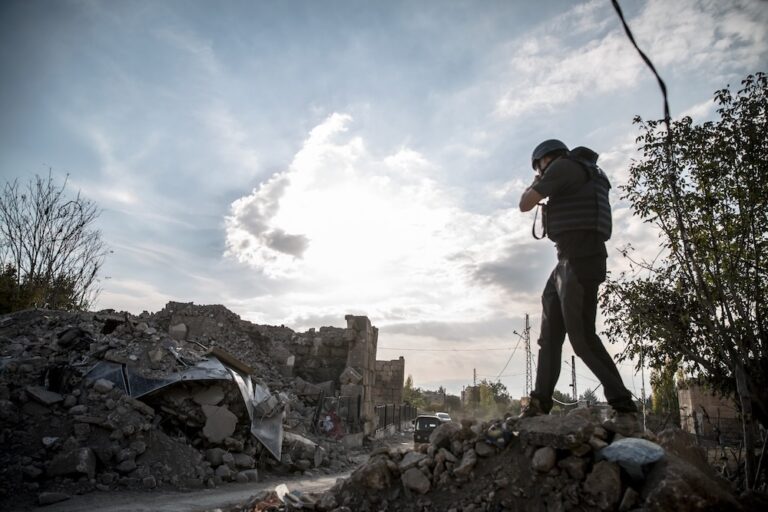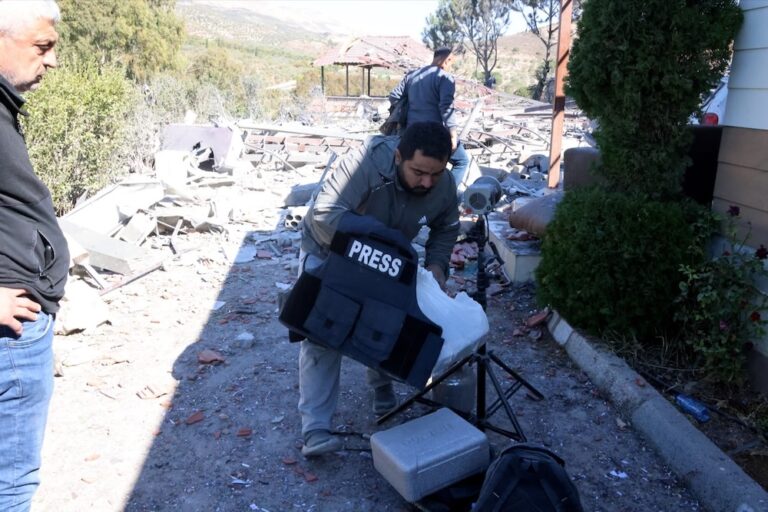During his tour of the Middle East, RSF has written to French President Jacques Chirac in order to draw his attention to the organisation’s concerns over the recent reorganisation of the broadcasting system in Lebanon. **Updates IFEX alert dated 19 September 1996** While RSF understands the Lebanese government’s wish to reorganise the broadcasting sector and […]
During his tour of the Middle East, RSF has written to French
President Jacques Chirac in order to draw his attention to the
organisation’s concerns over the recent reorganisation of the
broadcasting system in Lebanon.
**Updates IFEX alert dated 19 September 1996**
While RSF understands the Lebanese government’s wish to
reorganise the broadcasting sector and to introduce a legal
framework defining how it should operate, it is troubled by what
appears to be the government’s wish to restrict the freedom of
the broadcasting media by legalising only those that are
pro-Syria or that belong to Lebanese leaders close to Damascus,
and by banning opposition media. The radio and TV stations that
have been authorised — whether already in operation or yet to be
launched — either belong to leading Lebanese politicians or have
shareholders who are close to Syria. Those that have been banned
are known for their hostility or opposition to the current
government. The three biggest and longest-established radio
stations in Lebanon — the Voice of Lebanon, which belongs to the
Kataeb Christian Party, which opposes Hariri, the Voice of the
People, owned by the Communist Party, and the Voice of the
Fatherland — have not been allowed to continue broadcasting.
Background Information
On 17 September 1996, the Lebanese government gave permission to
four private television channels and eleven private radio
stations to broadcast. On the other hand, 47 radio and TV
stations had their requests for licences refused. They were
obliged to stop broadcasting political programmes beginning 18
September and must stop all broadcasts from 30 November. However,
the information minister, Farid Mekari, has said that stations
which had been refused licences might have until the end of
November to submit new requests in accordance with the
regulations.
The four TV channels that have been authorised, in accordance
with the recommendations of the Higher Broadcasting Council, are
Lebanese Broadcasting Company International (LBCI) of the former
Christian militia Lebanese Forces, Future Television (FTV), owned
by Prime Minister Rafic Hariri, Murr Television (MTV), which
belongs to the brother of interior minister Michel Murr, and the
National Broadcasting Network (NBN), due to be launched by the
speaker of Parliament, Nabih Berri. FTV and MTV also have plans
to start their own radio stations. Only these two radio stations
and the LBCI radio station Voice of Free Lebanon will be allowed
to broadcast news and political programmes.
Recommended Action
Send appeals to President Chirac:
have the broadcasting law revised so as to allow greater respect
for media diversity and the freedom to inform
Appeals To
His Excellency Jacques Chirac
President of the Republic
Paris, France
c/o the French diplomatic representative in your country
(in Canada)
Embassy of France
42 Sussex Drive
Ottawa, Ontario
K1M 2C9
Fax: +1 613 789 0279 or 789 3484
Please copy appeals to the originator if possible.


